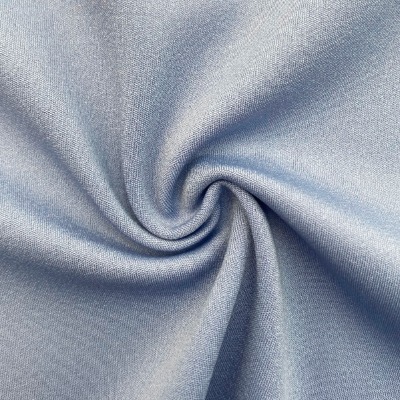The yoga wear spandex fabric market is highly competitive, requiring manufacturers to balance elasticity, flexibility, cost efficiency, and production speed. This guide explores practical strategies to optimize yoga stretch fabric performance while reducing manufacturing costs and improving efficiency.
1. Selecting the Right Yoga Wear Spandex Fabric
Key Fabric Properties for Optimal Performance
- High 4-Way Stretch (30-40% elongation) - Ensures unrestricted movement
- Excellent Recovery Rate (>90%) - Prevents sagging after repeated use
- Moisture-Wicking & Breathable - Enhances comfort during workouts
- Abrasion Resistance - Extends garment lifespan
Cost-Saving Tip:
- Work with suppliers offering bulk discounts on high-quality yoga stretch fabric
- Consider blended fabrics (e.g., 80% polyester + 20% spandex) for cost efficiency without compromising flexibility
2. Production Process Optimization
Advanced Manufacturing Techniques
- Automated Cutting Machines - Reduce fabric waste by 5-10%
- Seamless Knitting Technology - Eliminates stitching weaknesses, improving elasticity
- Precision Heat Setting - Ensures consistent stretch properties
Efficiency Boosters:
Digital Pattern Making - Reduces sampling costs by 20%
Lean Manufacturing - Minimizes downtime and material waste
3. Cost Reduction Strategies
Smart Sourcing & Inventory Management
| Strategy |
Cost Impact |
Implementation |
| Bulk Purchasing |
10-15% savings |
Negotiate with yoga fabric suppliers for volume discounts |
| Just-in-Time Inventory |
Reduces storage costs |
Use ERP systems for real-time tracking |
| Recycled Spandex Blends |
Lowers material costs |
Partner with sustainable yarn suppliers |
Pro Tip:
- Localize supply chains to reduce shipping costs and lead times
4. Quality Control for Consistent Performance
Testing & Certification
- Stretch & Recovery Tests (ASTM D2594) - Ensures long-lasting elasticity
- Colorfastness Checks (ISO 105-C06) - Prevents fading after washes
- OEKO-TEX® Certification - Guarantees skin-safe, non-toxic fabric
Quality Assurance Process:
- Incoming Fabric Inspection - Reject defective rolls early
- In-Line Monitoring - Detect production flaws in real-time
- Final Product Testing - Verify durability before shipping
5. Sustainable & Competitive Production
Eco-Friendly Practices That Cut Costs
- Waterless Dyeing - Saves 30-50% water and energy
- Waste Recycling - Repurposes fabric scraps into new yarn
- Solar-Powered Factories - Reduces long-term energy expenses
Market Advantage:
- Consumers prefer eco-conscious yoga wear (68% pay premium for sustainability)
6. Meeting Consumer Demand & Staying Competitive
- Seamless Designs - Enhances flexibility & comfort
- Antimicrobial Treatments - Reduces odor buildup
- UV Protection - Ideal for outdoor yoga
Consumer Feedback Loop:
- Use AI-driven analytics to track preferences
- Adjust yoga stretch fabric blends based on real-time demand

PEACHED INTERLOCK FABRIC
